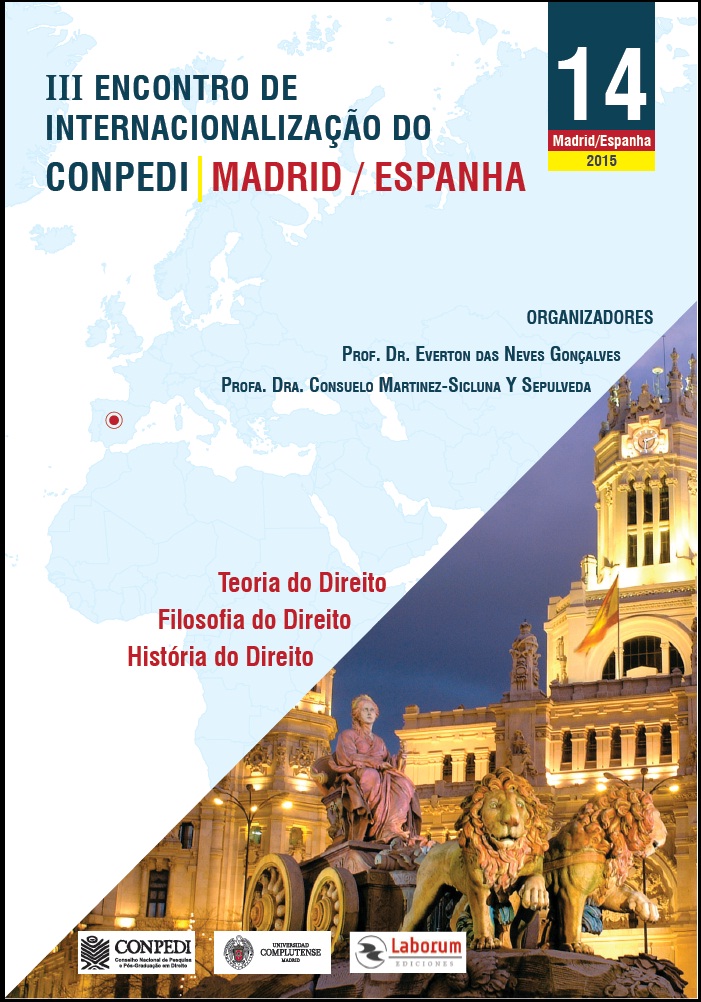The Informal Working in Fortaleza City: Between Urban Sanitation, Public Policy and Philosophy (1880-1910)
Main Article Content
Abstract
With this papper we aim to analyze the ways in which some people as self-employed, workers of the streets, such as porters, sellers and beggars, articulated his days in the city of Fortaleza, in the end of nineteenth century, between the political and regulatory joints of Ceará province. Despite of several attempts by the political, medical and establish intellectual high society discourses and practices against the massive presence of this kind of sel-employed, the disjointed work and the sick body of the popular, these, increasingly, were present through the work carried out, whether in times of drought, is the period of the belle époque of Fortaleza. Through the analysis of the sources, discusses to typify poor and informal workers, at the time when the economic elite of Fortaleza wanted to establish commercial modernity in this city. For the development of this article, we used literature and bibliographical research. Was performed in addition to the survey data of the time as another primary sources (Acting Secretary of the Business of Interior of Ceará Province Report, Match Proceedings of the Municipal Stewardship of Fortaleza, Corres- pondence Minutes of city Hall of Fortaleza); and secondary sources (Postures Code of the City of Fortaleza); and chronic books and besides memories of the city of Fortaleza.
Downloads
Article Details
Autores que publicam nesta revista concordam com os seguintes termos:
O(s) autor(es) autoriza(m) a publicação do texto na da revista;
O(s) autor(es) garantem que a contribuição é original e inédita e que não está em processo de avaliação em outra(s) revista(s);
A revista não se responsabiliza pelas opiniões, idéias e conceitos emitidos nos textos, por serem de inteira responsabilidade de seu(s) autor(es);
É reservado aos editores o direito de proceder a ajustes textuais e de adequação às normas da publicação.
Autores mantém os direitos autorais e concedem à revista o direito de primeira publicação, com o trabalho simultaneamente licenciado sob a Licença Creative Commons Attribution que permite o compartilhamento do trabalho com reconhecimento da autoria e publicação inicial nesta revista.
Autores têm autorização para assumir contratos adicionais separadamente, para distribuição não-exclusiva da versão do trabalho publicada nesta revista (ex.: publicar em repositório institucional ou como capítulo de livro), com reconhecimento de autoria e publicação inicial nesta revista.
Autores têm permissão e são estimulados a publicar e distribuir seu trabalho online (ex.: em repositórios institucionais ou na sua página pessoal) a qualquer ponto antes ou durante o processo editorial, já que isso pode gerar alterações produtivas, bem como aumentar o impacto e a citação do trabalho publicado (Veja O Efeito do Acesso Livre) emhttp://opcit.eprints.org/oacitation-biblio.html
References
BARBOSA, Marta Emisia Jacinto. Cidade na contramão: Fortaleza nas primeiras décadas do século XX. Dissertação de Mestrado: PUC/SP, 1996.
BARROSO, Gustavo. Memórias de Gustavo Barroso. Fortaleza: Governo do Estado do Ceará, 1989.
BERGSON, Henri. O riso; ensaio sobre a significação do cômico. 2ª ed. Rio de Janeiro: Editora Guanabara, 1987.
BITTAR, Eduardo; ALMEIDA, Guilherme Assis de. Curso de Filosofia do Direito. São Paulo: Atlas, 2011.
CAMINHA, Adolfo. A normalista. São Paulo: Três Editoras, 1973 (Col. Obras Imortais de Nossa Literatura, 9).
DIAS, Maria Odila Leite da Silva. Quotidiano e poder. São Paulo: Brasiliense, 1984.
VEIGA-NETO, Alfredo. Foucault – Filosofia e política. Rio de Janeiro: Autêntica, 2011.
LEMENHE, Maria Auxiliadora. As razões de uma cidade: Conflito de hegemonias. Fortaleza: Stylus Comunicações, 1991.
MENEZES, Raimundo de. Coisas que o tempo levou... (Crônicas históricas da Fortaleza antiga). Fortaleza: Edésio Editor, 1938.
NEVES, Frederico de Castro. A multidão e a história: saques e outras ações de massas no Ceará. Rio de Janeiro: Relume Dumará, 2000.
PINTO, Maria Inez Borges. Cotidiano e sobrevivência: a vida do trabalhador pobre na cidade de São Paulo, 1890-1914.São Paulo: Edusp, 1994.
PONTE, Sebastião Rogério. Fortaleza belle époque: reformas urbanas e controle social (1860-1930). Fortaleza: Fundação Demócrito Rocha/Multgraf Editora, 1993.
RIOS, Kênia Sousa. Isolamento e poder: Fortaleza e os campos de concentração na seca de 1932. Dissertação de Mestrado em História Social. São Paulo: PUC/SP, 1998.
THEOPHILO, Rodolpho. Varíola e vacinação no Ceará. – Ed. Fac-sim. Fortaleza: Fundação Waldemar Alcântara, 1997.





